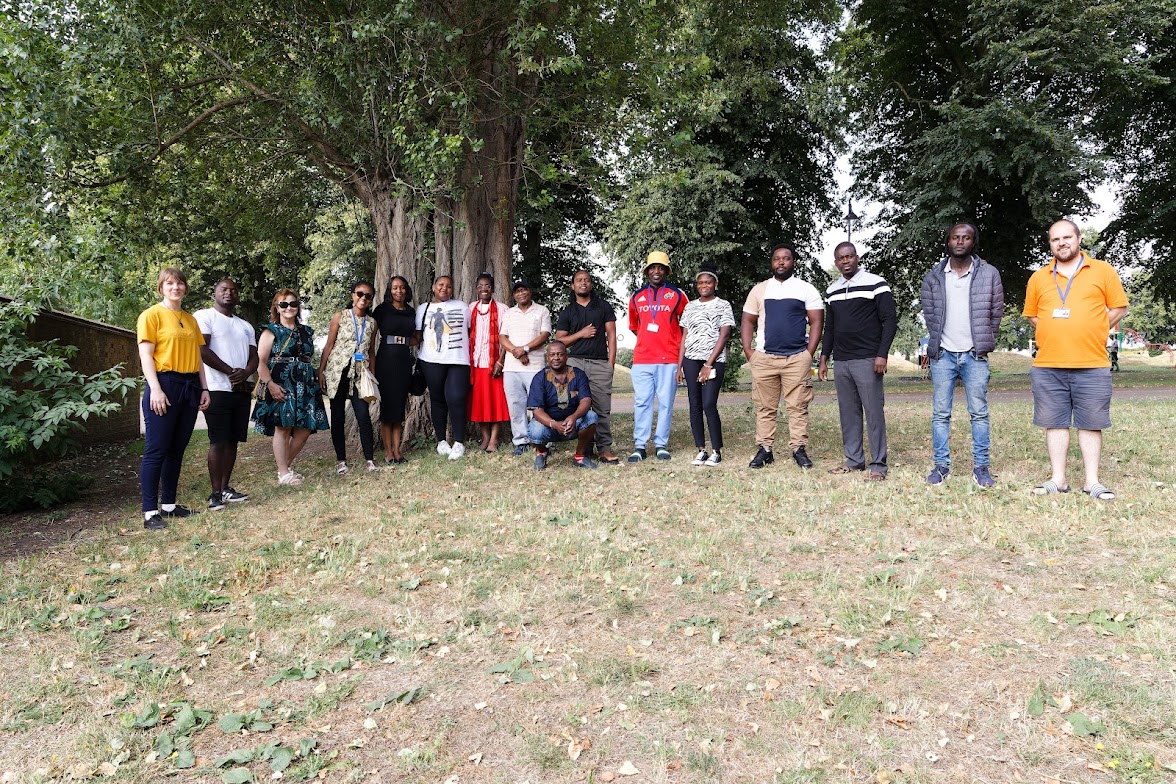
The United African Association (UAA) exists to support mainly members of the African community living in Northampton and the wider county. The majority of the people it supports have no recourse to public funds and are not eligible for certain types of support usually available through ‘normal channels’. Its service users tend to be those facing financial hardships, exclusion and isolation so it tailors its services, activities and events to their needs. The majority of its services are cost free so as to encourage people who usually don’t take part in any sort of social or recreational activity to become involved and be part of our organisation.
Anne Wankiiri, CEO and Chair at UAA, shares their reflections on the Inclusive Leadership programme.
What motivated you to apply for Inclusive Leadership run in partnership with Barclays?
We are a small team serving a very large number of people. Members of the African community request our services for a range of issues they face, including homelessness, immigration, housing, mental health, domestic abuse, exploitation, modern slavery, poverty and much more. Additionally, there are large numbers of people wanting to volunteer with our organisation. Our team of four main staff have to deal with community support, running an office, foodbank, managing volunteers, project management, liaising with statutory and partner organisations as well as ongoing fundraising for the running of the charity and its activities. We felt we were constantly firefighting and, in some cases, not having a work/life balance.
Additionally, we were not making adequate use of the volunteers who had signed up to assist our organisation. We needed assistance with helping us organise and making use of the volunteers to enable us to work more effectively.
How did the project go?
It was good to get away from the office, from our activities, and focus on a project which was going to ultimately enable us to better run our organisation. The team of Pilotlighters we worked with at Barclays had a wealth of experience obtained from both their professional and personal lives. They offered us advice from an outsider's perspective.
The team focused on streamlining three main areas of our operations: volunteer coordination, communications and engagement, and funding:
- Volunteer coordination: the goal here was to enable a more efficient and effective way for us to use volunteers to support our work. The Pilotlighters looked into a way of automatically and electronically capturing and storing key information about volunteers to optimise allocation of key activities.
- Communications and engagement: the team’s work here revolved around looking at how we could increase engagement and use different channels to highlight events and activities for volunteers to support or attend. The Pilotlighters also provided useful ideas regarding drafting digital and hard copy newsletters.
- Funding: for this area the Pilotlighters provided suggestions on how to enlist the help of volunteers who have skills and experience in certain areas, and on how to create a central repository of answers to key questions. This would then optimise the number of grant applications UAA can draft and send.
The experience was an eye opener for the staff and volunteers who were involved. The Inclusive Leadership programme enabled us to restructure how we run certain aspects of our organisation, enabling us to implement time saving processes and make better use of staff and volunteers to give us a better work-life balance.
Anne Wankiiri, CEO and Chair at UAA
Since the programme was completed
Digital innovations: Since we completed the programme, we have started creating more and more online forms, instead of having paper copies printed, which has brought more efficiency to our processes. We are also planning to create more professional emails. This will enable us to streamline incoming mail as we get a lot of emails about so many topics and queries, it is very easy to overlook some emails. Additionally, with seven people having access to the emails it’s not always clear who should respond to what. With differing emails, we will assign specific staff and volunteers to oversee the incoming mails enabling better responses and working, and also not to miss out on any beneficial opportunities.
We are also looking into using free tools such as MS office for charities and AI, and signing onto courses to increase our understanding of how to use these products more effectively within our organisation.
Empowering volunteers: Previously, staff were running certain projects e.g. the Monday evening online sessions. With our current volunteer base there are a lot of knowledgeable and skilled people who could facilitate these sessions, taking the pressure of the full time staff. We recently recruited some Public Health students who can run a variety of sessions that are beneficial to members of the community. They do the research, prepare the slides, send out the invitations and facilitate the sessions. This has taken so much pressure off us.
What are your top takeaways from the programme?
If you’re a charity leader about to take part in the programme, I would encourage you to be prepared to admit the weaknesses within the running of your organisation. The Pilotlighters we worked with came from a private sector working background, however they understood how charities/voluntary organisations run, and were able to offer solutions and advise to enable us to better run UAA.